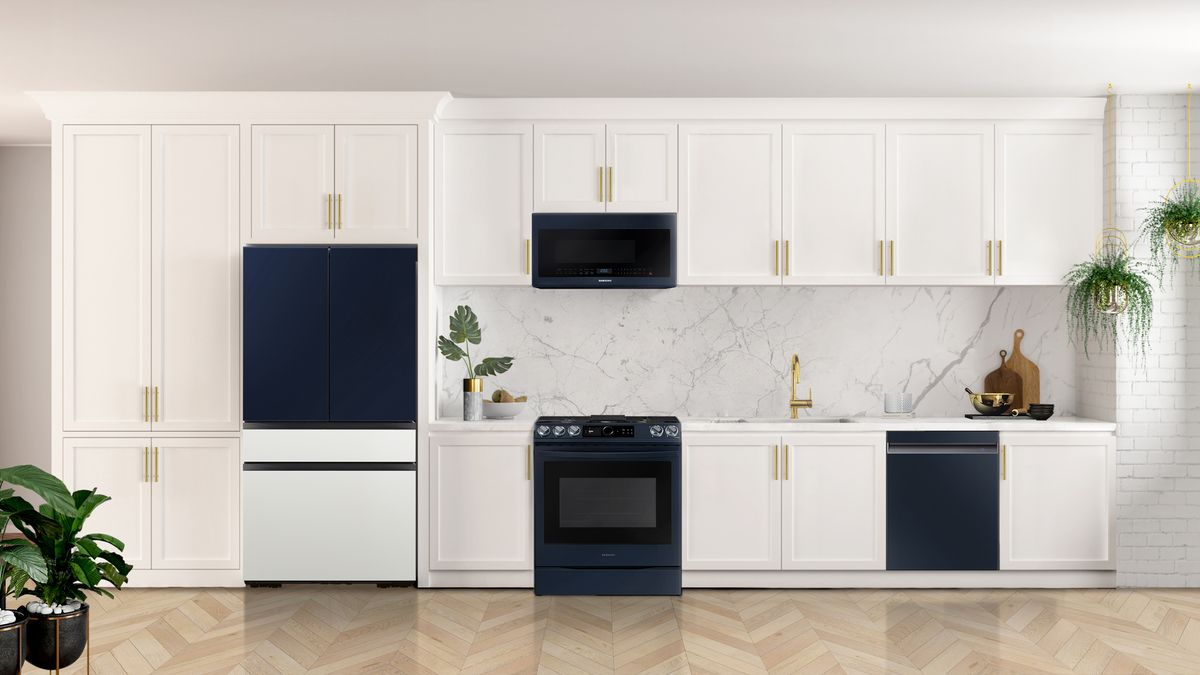What is Samsung's ambient sensing? Unpacking the new SmartThings AI features
SmartThings gets smarter

During Samsung's Galaxy Unpacked 2025 event, its SmartThings division unveiled new AI technology that could be set to supercharge the smart-home experience – provided that you have a Samsung-based ecosystem, that is.
The new tools will fall under the banner of Samsung's Home AI, and include 'ambient sensing', a feature that gathers insights from connected devices around your home and adapts to your everyday life to make your smart home more efficient.
We don't have a confirmed release date yet, other than a broad 2025-2026 rollout window, which means there's plenty of time to kit your smart home out with SmartThings-enabled hardware; just bear in mind that it's likely most features will be exclusive to Samsung's devices, at least in the short term.
Here are the answers to all your burning questions…
What is ambient sensing?
Chief among these new developments is ambient sensing, whereby SmartThings devices will be able to leverage advanced sensor technology such as motion and sound detection to monitor your daily activities and create the perfect environment for every moment.
Many of Samsung's devices feature such sensors, from the new Bespoke JetBot Combo AI robot vacuum to Samsung's large appliances and the Samsung Music Frame, meaning you just might already have a few devices in your home that will benefit from the new ambient sensor technology.
What will Samsung's ambient sensing do?
Samsung provided a few examples of what its ambient sensing technology will be capable of:
Get daily insight, inspiration and deals in your inbox
Sign up for breaking news, reviews, opinion, top tech deals, and more.
- Human Detection and Activity Monitoring: SmartThings will be able to use sensors to detect different activities like push-ups, sleeping, or even working at your desk. This information will be used to recommend better routines and improve your environment.
- Health Insight and Lifestyle Recommendations: It's not just your devices that SmartThings will adjust; to help you keep healthy, SmartThings will provide real-time feedback such as reminding you to move around if you've been sitting for too long.
So what might this look like in practice? For example, while you're working out, Samsung says SmartThings will be able to detect which kind of exercise you’re doing, offering guidance on your form and giving recommendations for how to up your gains by changing the length of exercise.
If you've just hopped in the shower, the sound and motion made as you dry your hair could trigger your robot vacuum to collect any hair you shed in the process, or create a more ambient mood as you approach your favorite reading chair by switching on the nearby lamp and adjusting the room's temperature.
Or, if you've got a particularly fluffy friend at home that emits wafts of fur as it jumps up on furniture, SmartThings could even recognize this and activate your air purifier to remove allergens from the air.
Indeed, it's a development I discussed with a number of executives at CES 2025, though I couldn't quite get a sense for how soon these features might manifest; now I know, and I'm delighted that it's set to happen so much sooner than I'd anticipated.
Generative AI Map View
The fun doesn't stop there; SmartThings is also set to upgrade its AI Home arsenal with Generative AI technology, namely by adding further personalization to your Map View.
Now, Samsung says you'll be able to use your phone camera to capture images of furnishings around your home to make Map View more accurate to your styling.
That in turn means you'll have a better user experience when it comes to navigating around and interacting with your smart home, as Map View will know where your furniture is, and be capable of leveraging the new ambient sensing technology based on proximity.
Will SmartThings keep my home data secure?
The short answer is, Samsung says, yes.
The longer answer is that Samsung will store all information locally on your network, offering privacy by keeping the data within Samsung's appliances and devices instead of being dependent on the cloud. That means, Samsung says, that your data won't be accessible to third parties without your consent.
Samsung is, frankly, light years ahead of its smart home competition, owing to its combination of wide-ranging product categories across home and lifestyle devices, its worldwide popularity, and its various partnerships with the likes of Google for its AI tools as well as its collaboration with the Connectivity Standards Alliance on Matter.

Josephine Watson (@JosieWatson) is TechRadar's Managing Editor - Lifestyle. Josephine is an award-winning journalist (PPA 30 under 30 2024), having previously written on a variety of topics, from pop culture to gaming and even the energy industry, joining TechRadar to support general site management. She is a smart home nerd, champion of TechRadar's sustainability efforts as well and an advocate for internet safety and education. She has used her position to fight for progressive approaches towards diversity and inclusion, mental health, and neurodiversity in corporate settings. Generally, you'll find her fiddling with her smart home setup, watching Disney movies, playing on her Switch, or rewatching the extended edition of Lord of the Rings... again.
You must confirm your public display name before commenting
Please logout and then login again, you will then be prompted to enter your display name.
Most Popular





